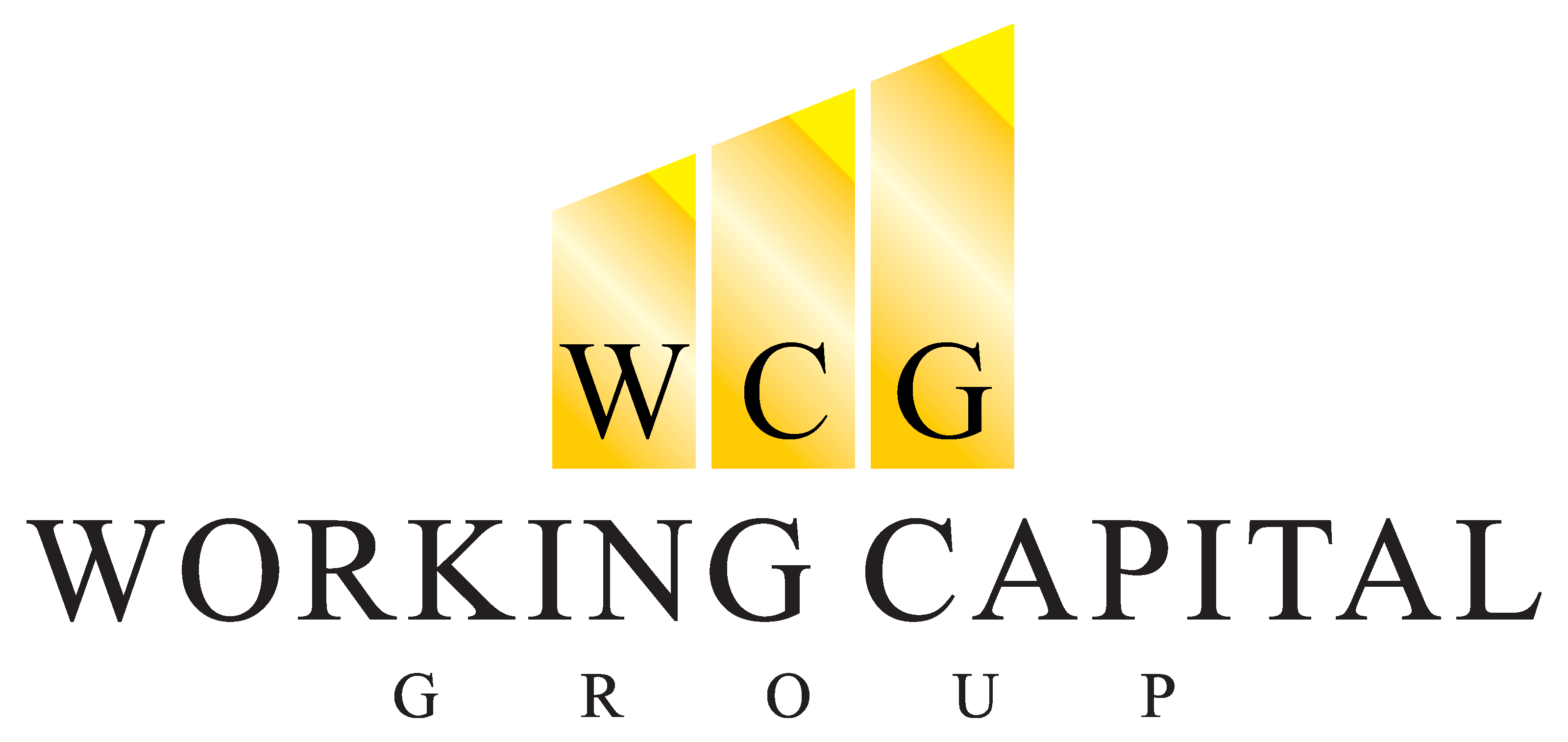Commercial Real Estate Financing: Asset Types, Loans, and Lenders
Whether you’re looking to fund the acquisition, development or construction of commercial property, you will likely need to secure funds through commercial real estate financing.
In this article, we detail the different types of commercial financing available to investors and business owners, discuss how these loans can differ based on property and ownership type, and list some of the top commercial real estate lenders.
Commercial Real Estate Financing
Commercial real estate lending is a highly complex topic.
Investors seeking financing to purchase income-producing property, business owners looking to build or buy space to house their business, and developers in need of a loan for an upcoming project all need to understand the many aspects of commercial real estate financing.
Let’s start with the basics.
About Commercial Real Estate Financing
Regardless of the reason a borrower is seeking a commercial real estate loan, financing the purchase of a commercial asset differs from procuring financing for a personal residential loan in several ways.
These differences depend both on the type of financing needed and how the borrowed funds are going to be used.
Qualifying for Commercial Real Estate Financing
Commercial real estate loans typically require more scrutiny than residential mortgages.
When evaluating commercial real estate loan applications, lenders will consider several factors.
Depending on the lender and the type of financing, these can include available collateral, borrower creditworthiness, and certain financial ratios dependent on characteristics of the property in question.
Borrowers may need to provide several years of financial statements and income tax returns.
Lenders may also want to see financial statements indicating cash flow for the property to be financed.
1. Creditworthiness
Most residential mortgages are made to individual borrowers, but commercial real estate loans are often made to business entities instead.
If the entity itself doesn’t yet have any financial track record or credit rating, the lender may require the principals of the business entity to guarantee the loan.
In commercial real estate lending, required minimum individual FICO scores typically range from 550 to 700, depending on lender and loan type.
Minimum business credit scores vary depending on those factors, as well as on which credit scale and credit reporting bureau the lender is using.
2. Collateral
Because private mortgage insurance isn’t available for commercial real estate loans, commercial lenders must typically rely on the property itself as collateral, in case the borrower defaults on the loan.
For this reason, commercial real estate lending is often based largely on the loan-to-value (LTV) ratio, which measures the value of the loan against the value of the property being financed.
If the LTV rate is too high, lenders may not be willing to offer financing. Generally, commercial real estate loans have an LTV ratio of 65-80%.
The exact LTV rate required often depends on the commercial asset class to be financed. We’ll explore this further when we look at the differences in commercial lending by asset type.
3. Debt-Service Coverage Ratio
Another aspect that commercial lenders often look at when determining the maximum size for a commercial real estate loan is the property’s debt-service coverage ratio (DSCR).
This ratio divides a property’s annual net operating income (NOI) by its annual mortgage dept service (principal and interest payments).
A DSCR of 1 or more indicated positive cash flow, while a DSCR of less than 1 indicates negative cash flow. Commercial lenders typically look for a DSCR of 1.25 or above, although a lower DSCR may be acceptable for loans with shorter amortization periods or properties with stable cash flow.
Loan Rates & Fees
Commercial real estate loans typically have shorter terms than residential loans, ranging anywhere from six months to twenty years, depending on lender and loan type.
Interest rates are generally higher than residential loan rates and are affected by a number of factors, including the length of the loan term and the amortization period, as well as the investor’s credit strength.
Generally speaking, the longer the loan repayment schedule, the higher the interest rate. Interest rates for commercial real estate can also be affected by the LTV ratio. Typically, the lower the LTV ratio, the lower your interest rate.
There are usually a number of fees associated with commercial real estate financing.
These can include appraisal, legal, loan application, loan origination and/or survey fees. Some of these fees must be paid while the loan is in the approval process, while others are applied annually.
Commercial loans are also more likely than residential loans to have restrictions on prepayment or to charge prepayment penalties, although these can sometimes be negotiable.
Commercial Real Estate Financing Options
Here we cover four main types of commercial real estate financing – conventional commercial real estate loans, commercial hard money loans, SBA loans and bridge loans.
Each type of financing has positives and negatives, as well as specific applications for which it is most appropriate.
Conventional Loans
Conventional commercial real estate loans bear the most similarity to residential mortgage loans.
They offer the longest terms of any type of commercial real estate financing, typically a 5 to 10-year repayment schedule, and comparatively low interest rates, typically in the range of 4.7-6.75%.
Underwriting for these loans may take months, as lenders will generally order an appraisal of the property and will want to see complete borrower and property financials.
Among other things, requirements may include a personal FICO score of 700 or more and at least one year of business financial data.
This most traditional type of commercial real estate financing is most frequently used by investors looking to buy an existing, occupied asset with positive cash flow.
Balloon loans are a variation of conventional commercial real estate lending.
These loans have shorter terms (typically 3-7 years), and either have a longer amortization period (perhaps 30 years) or require interest-only payments.
This allows for smaller monthly payments for the life of the loan with the final balance due in one large “balloon” payment.
A balloon loan may be a good fit for borrowers who cannot afford large monthly payments at the time of purchase but expect to have greater resources when the final payment comes due.
It might also be right for investors who plan to sell the property at a profit at the end of the loan term and use part of the proceeds to make the final payment.
Hard Money Loans
In CRE, hard money lending consists of loans provided by private investors (individuals or companies) who lend money based mainly on the value of the property.
There’s usually limited reference to the borrower’s credit rating or overall financial standing.
Because underwriting standards for hard money loans are much lower than conventional loans, financing can usually be secured in days or weeks, rather than months.
Hard money loans are typically short-term, with repayment periods ranging from 6 to 24 months.
Interest rates are much higher than those of conventional commercial real estate loans (ranging from approximately 10-18%) and up-front fees are more expensive too.
Commercial hard money loans are often used to fix and flip property, when quick financing is needed (with future refinancing under more favorable rates in mind), or when borrowers don’t have the credit background necessary to qualify for other types of commercial real estate financing.
SBA Loans
The U.S. Small Business Administration offers two types of loans that may be applicable to commercial real estate investors – SBA 7(a) loans and SBA 504 loans.
Because the SBA guarantees repayment of a portion of the loan, lenders charge some of the lowest interest rates for SBA commercial real estate loans.
SBA 7(a) loans are the most popular SBA loan option.
Funds obtained through these flexible loans can be used for owner-occupied commercial real estate purchases (with the borrower’s business occupying at least 51% of the square footage), working capital, debt refinancing and more.
The maximum amount of financing available through an SBA 7(a) loan is $5 million.
Interest rates are currently in the 7-10% range.
SBA 504 loans don’t have a maximum loan amount. They can be used to purchase, build or improve owner-occupied commercial real estate or to purchase long-term business equipment.
Maximum interest rates for these loans are currently in the 4-7% range.
There are a number of requirements borrowers must meet to qualify for an SBA loan program.
These include restrictions on:
- Business size
- Location (US-based businesses only)
- Business type
- Borrower character, credit and business background
- For existing businesses, business credit score and financial situation
See the SBA Eligibility Questionnaire to help determine if you qualify for an SBA loan.
Both types of SBA loans require collateral, a personal guarantee from anyone who owns 20% or more of the business, and a 10% down payment.
The repayment terms for both loan types will depend on the purpose of the loan, and pre-payment penalties do apply. SBA loans are processed through many large U.S. banks as well as some credit unions and certain specialized lenders.
Bridge Loans
Bridge loans offer short-term financing for commercial real estate purposes.
Loan terms range from 6 months to 3 years and interest rates are in the 6-9% range.
Business owners will typically need a credit score of 650+ and a 10-20% down payment to obtain a bridge loan.
At 15 to 45 days, bridge loans have a shorter approval process than conventional loans.
These loans are often used to obtain temporary financing while improving one’s credit profile, completing a longer-term loan application process, or building or renovating commercial property.
For more on commercial real estate loan types, read on here.
A Look at Commercial Lending by Asset Type
As we’ve mentioned above, financing options can be affected by the type of borrower (individual or business entity, small business or large corporation etc.) and how the borrower plans to use the property.
Loan options can also be significantly affected by the type of property being financed.
Let’s look at the differences and typical outlook for lending across different asset types in CRE.
Financing for General Commercial Buildings
Most types of commercial buildings (office buildings, retail buildings, mixed-use spaces etc.) share similar characteristics when it comes to financing, though some may differ.
Office Building Financing
Most asset types have fairly consistent financing rates across the country.
Office building financing rates, however, vary widely by state, with the highest rates in areas with high demand and limited asset availability.
Financing requirements for office buildings are generally typical of commercial real estate financing requirements across the board, but medical office buildings have slightly relaxed requirements.
Due to the stability of the market segment, they typically have high occupancy rates and loyal tenants.
The DSCR for medical office buildings is slightly lower, often starting at 1.20 and their purchase may require only 10% down.
Hotel Loans
Higher DSCR ratios than normal may be required for hotel loans, as hotels typically have a volatile cash flow due to their lack of long-term tenant leases.
Also, most hotel lenders prefer to stay between 55-60% percent LTV.
Hotels with recognizable names or affiliations (“flagged hotels“) tend to get better rates and terms and larger appraisal values than similar, unflagged hotels.
Regardless of flagged status, a hotel’s management is vital to its financing.
Whether borrowers are running the operation themselves or using a management company will play a factor in the financing.
Lenders will not be willing to finance the purchase of a hotel if the buyer has no experience in the industry and also cannot reasonably support a full-time management team.
Hotels are different than other commercial asset types because lenders must recognize the value in both their real estate and their ongoing operation.
For this reason, borrowers wishing to finance the purchase of a hotel would be wise to look for a lender with plenty of experience closing lodging deals.
Special-Use Property Financing
Properties with restaurants, fitness centers, dry cleaners, car washes, gas stations and other similar business types may have underwriting restrictions.
These types of properties are considered special use property, because they’re expensive to convert to another use, zoning may restrict their use, and the property’s financial situation could easily be affected by trends, operation, equipment or cash flow.
Because of the increased financial risk associated with special use properties, it can be more difficult to finance their purchase.
To mitigate the risk, lenders may require larger down payments, take additional security, require solid guarantees, or include an operating covenant in the financing agreement.
Multifamily Financing
Multifamily properties are classified as commercial real estate for financial purposes only if they have five or more living units. Residential properties with 4 or less unites can be purchased with conventional residential loans.
Financing options for duplexes, triplexes and fourplexes depend on whether the buyer intends to occupy one of the units or is purchasing the property solely for investment purposes.
Owner-occupants may qualify for FHA or VA loans, in addition to conventional mortgage loans.
Residential multifamily property purchases will require 20% down. In some cases, the buyer may be able to purchase private mortgage insurance (PMI) instead.
The LTV ratio for multifamily property purchases classed as commercial real estate sales may be close to the 80% typically allowed for residential mortgages, with buyers often only required to put 20-30% down.
Lower DSCR’s may also be acceptable, since multifamily properties typically have fairly stable cash flow.
Investors who will not be occupying the property will typically need larger down payments and higher credit scores to obtain multifamily financing and will pay more upfront fees and/or a higher interest rate than owner-occupiers.
Multifamily property financing can be obtained through most banks, credit unions, and other conventional mortgage lenders.
Warehouse Lending
Industrial real estate is currently one of the top asset classes for both investors and lenders.
As an investment, industrial real estate offers a strong opportunity for excellent returns. Warehouse financing often is more favorable to investors than other types of commercial real estate financing.
With a rising demand for industrial properties and low vacancy rates, many lenders are offering discounted rates on industrial property financing and allowing amortization schedules as long as 30 years.
In some cases, the DSCR for industrial property loans has dropped as low as 1.25, which equates to higher LTV ratios as well.
Land Financing
On the other hand, land financing tends to be more difficult to obtain than other types of commercial real estate financing.
It’s generally more difficult to sell land than developed property, if a buyer defaults.
Lenders also view land loans as riskier than other types of loans, as they consider that the borrow has less invested in the property due to its lack of improvements.
Because of this, the maximum LTV ratio for raw land financing is lower than for many other asset types (around 65%).
The type of lender borrowers can look to for land financing depends on whether the buyer plans to build on the land immediately, develop it later or keep it vacant for the foreseeable future.
SBA loans can be an excellent source for land financing, if the borrower plans to use the property to build facilities that their business will occupy.
Otherwise, specialized lenders, credit unions and small local lenders may be a borrower’s best bet for land financing.
With so many types of financing, commercial real estate lending sources, and the variations in financing options depending on asset class, it can seem overwhelming, but you have to start somewhere.
This content was originally published here.



